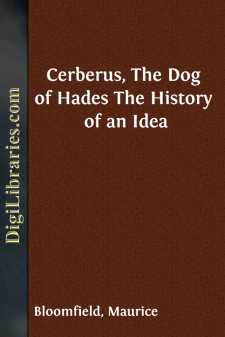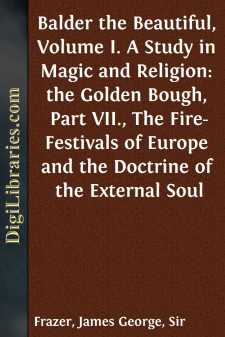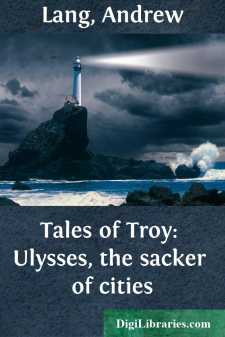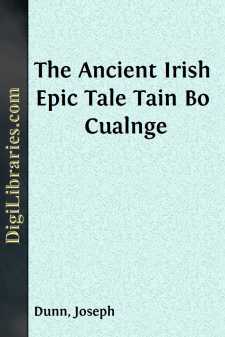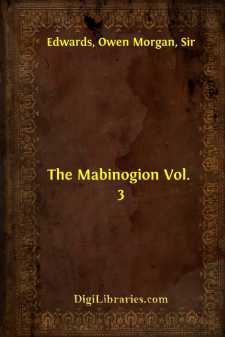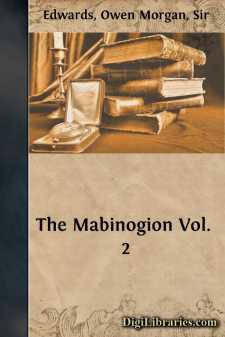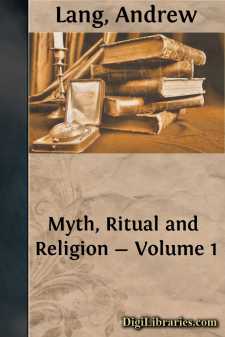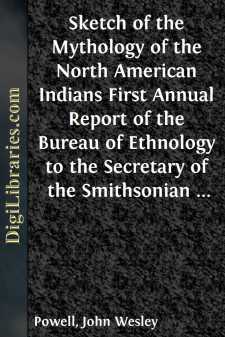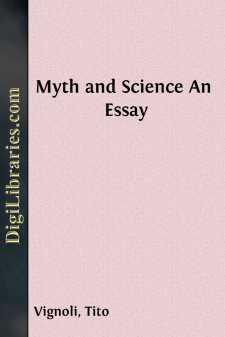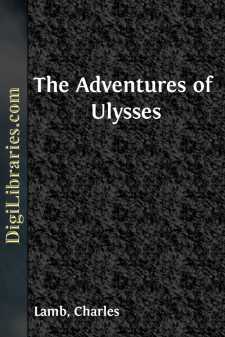Social Science
- Americana 1
- Anthropology 4
- Archaeology 7
- Criminology 2
- Emigration & Immigration 2
- Folklore & Mythology
- General 1
- Slavery 10
- Sociology 10
- Sociology of Religion 1
Folklore & Mythology Books
Sort by:
CERBERUS, THE DOG OF HADES Hermes, the guide of the dead, brings to Pluto's kingdom their psyches, "that gibber like bats, as they fare down the dank ways, past the streams of Okeanos, past the gates of the sun and the land of dreams, to the meadow of asphodel in the dark realm of Hades, where dwell the souls, the phantoms of men outworn." So begins the twenty-fourth book of the Odyssey....
more...
CHAPTER I BETWEEN HEAVEN AND EARTH § 1. Not to touch the Earth [The priest of Aricia and the Golden Bough] We have travelled far since we turned our backs on Nemi and set forth in quest of the secret of the Golden Bough. With the present volume we enter on the last stage of our long journey. The reader who has had the patience to follow the enquiry thus far may remember that at the outset two...
more...
by:
Andrew Lang
THE BOYHOOD AND PARENTS OF ULYSSES Long ago, in a little island called Ithaca, on the west coast of Greece, there lived a king named Laertes. His kingdom was small and mountainous. People used to say that Ithaca “lay like a shield upon the sea,” which sounds as if it were a flat country. But in those times shields were very large, and rose at the middle into two peaks with a hollow between...
more...
by:
Joseph Dunn
I. The Prologue One night at the palace of Cruachan in Connacht, a dispute arose between Queen Medb, the sometime wife of Conchobar, king of Ulster, and her consort Ailill, as to the amount of their respective possessions. It may be remarked in passing that in those days in Ireland, married women retained their private fortune independent of their husbands, as well as the dowry secured to them in...
more...
PWYLL PRINCE OF DYVED. Pwyll, prince of Dyved, was lord of the seven Cantrevs of Dyved; and once upon a time he was at Narberth his chief palace, and he was minded to go and hunt, and the part of his dominions in which it pleased him to hunt was Glyn Cuch. So he set forth from Narberth that night, and went as far as Llwyn Diarwyd. And that night he tarried there, and early on the morrow he rose...
more...
GERAINT THE SON OF ERBIN. Arthur was accustomed to hold his Court at Caerlleon upon Usk. And there he held it seven Easters, and five Christmases. And once upon a time he held his Court there at Whitsuntide. For Caerlleon was the place most easy of access in his dominions, both by sea and by land. And there were assembled nine crowned kings, who were his tributaries, and likewise earls and...
more...
by:
Andrew Lang
PREFACE TO NEW IMPRESSION. When this book first appeared (1886), the philological school of interpretation of religion and myth, being then still powerful in England, was criticised and opposed by the author. In Science, as on the Turkish throne of old, "Amurath to Amurath succeeds"; the philological theories of religion and myth have now yielded to anthropological methods. The centre of the...
more...
THE GENESIS OF PHILOSOPHY. The wonders of the course of nature have ever challenged attention. In savagery, in barbarism, and in civilization alike, the mind of man has sought the explanation of things. The movements of the heavenly bodies, the change of seasons, the succession of night and day, the powers of the air, majestic mountains, ever-flowing rivers, perennial springs, the flight of birds, the...
more...
by:
Tito Vignoli
CHAPTER I. THE IDEAS AND SOURCES OF MYTH. Myth, as it is understood by us, and as It will be developed and explained in this work, cannot be defined in summary terms, since its multiform and comprehensive nature embraces and includes all primitive action, as well as much which is consecutive and historical in the intelligence and feelings of man, with respect to the immediate and the reflex...
more...
by:
Charles Lamb
CHAPTER ONE The Cicons.—The Fruit of the Lotos-tree.—Polyphemus and the Cyclops.—The Kingdom of the Winds, and God Aeolus's Fatal Present.—TheLaestrygonian Man-eaters. This history tells of the wanderings of Ulysses and his followers in their return from Troy, after the destruction of that famous city of Asia by the Grecians. He was inflamed with a desire of seeing again, after a ten...
more...


